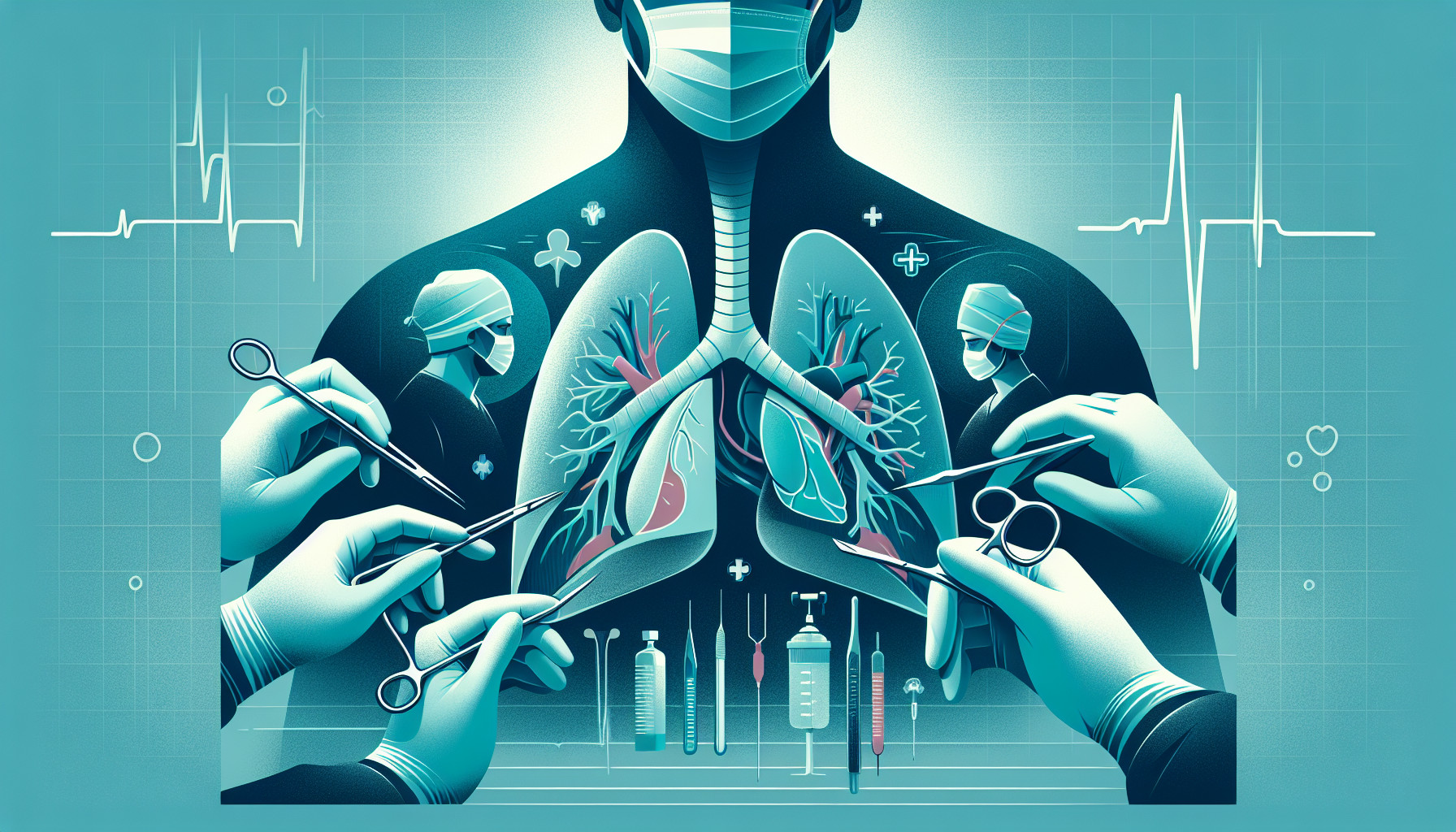Our Summary
This study aimed to create a model to predict the risk of serious illness and death after having a lung biopsy surgery in patients with interstitial lung disease. Interstitial lung disease refers to a group of disorders characterized by scarring or inflammation of the lungs, which can cause severe breathing difficulties.
The study looked at patients who had this type of surgery between 2004 and 2019. The results showed that the rates of serious illness and death after the surgery decreased over time. In 2004-2005, the rate was 8.9%, but by 2018-2019, it had dropped to 0%.
The study identified several factors that were linked with an increased risk of serious illness and death after the surgery. These included the severity of the patient’s breathlessness, whether the patient’s lungs were functioning at less than 60% capacity, whether the patient was receiving oxygen therapy before the surgery, whether the patient needed to stay in the intensive care unit before the surgery, and whether the patient had a heavy smoking history.
Using these factors, the researchers developed a scoring system which can predict the risk of serious illness and death after the surgery. This could help doctors identify which patients are good candidates for lung biopsy surgery.
FAQs
- What is the purpose of the study on lung biopsy surgery in interstitial lung disease patients?
- What factors were found to increase the risk of serious illness and death after lung biopsy surgery?
- How has the rate of serious illness and death after lung biopsy surgery changed over time?
Doctor’s Tip
One helpful tip a doctor might tell a patient about lung biopsy is to discuss any concerns or questions they have with their healthcare team before the procedure. It is important for the patient to understand the risks and benefits of the procedure, as well as any potential complications. Additionally, following the doctor’s instructions for pre- and post-operative care, such as avoiding certain medications or activities, can help ensure a successful outcome. Lastly, maintaining open communication with the healthcare team throughout the process can help address any issues or concerns that may arise.
Suitable For
Patients who are typically recommended for lung biopsy include those with interstitial lung disease, suspected lung cancer, suspected infections (such as tuberculosis or fungal infections), suspected autoimmune diseases affecting the lungs (such as sarcoidosis or rheumatoid arthritis), and unexplained or persistent lung nodules or masses. Additionally, patients who have failed to respond to other diagnostic tests or treatments, have unexplained symptoms such as coughing up blood or unexplained weight loss, or have a history of exposure to substances known to cause lung disease (such as asbestos) may also be recommended for a lung biopsy.
Timeline
Before the lung biopsy:
- Patient experiences symptoms of interstitial lung disease such as shortness of breath, cough, and fatigue.
- Patient undergoes diagnostic tests such as chest X-rays, CT scans, and pulmonary function tests to confirm the diagnosis.
- Once the diagnosis is confirmed, the patient may be advised to undergo a lung biopsy to obtain a tissue sample for further evaluation.
- The patient meets with the healthcare team to discuss the risks and benefits of the procedure, and any necessary preparations are made.
After the lung biopsy:
- The patient undergoes the lung biopsy procedure, which may be done through a bronchoscopy, needle biopsy, or surgical biopsy.
- After the procedure, the patient is monitored for any complications such as bleeding, infection, or pneumothorax.
- The patient may experience some pain or discomfort at the biopsy site and may be prescribed pain medication.
- Results from the biopsy are analyzed to determine the underlying cause of the interstitial lung disease.
- The patient follows up with their healthcare team to discuss the biopsy results and develop a treatment plan based on the findings.
What to Ask Your Doctor
Some questions a patient should ask their doctor about lung biopsy surgery include:
- What is the reason for recommending a lung biopsy?
- What are the potential risks and complications associated with the procedure?
- How will the biopsy be performed (e.g. through a needle, bronchoscopy, open surgery)?
- How long will the recovery process take?
- Will I need to stay in the hospital after the procedure?
- What are the alternatives to a lung biopsy?
- How can I prepare for the procedure (e.g. fasting, medications to avoid)?
- Will I need any follow-up tests or appointments after the biopsy?
- What are the chances of the biopsy causing serious illness or death, based on my individual health factors?
- Are there any specific factors about my health history that could impact the success or safety of the procedure?
Reference
Authors: Yun JK, Lee GD, Kim HR, Kim YH, Kim DK, Park SI, Choi S. Journal: Eur J Cardiothorac Surg. 2022 Oct 4;62(5):ezac291. doi: 10.1093/ejcts/ezac291. PMID: 35579359
